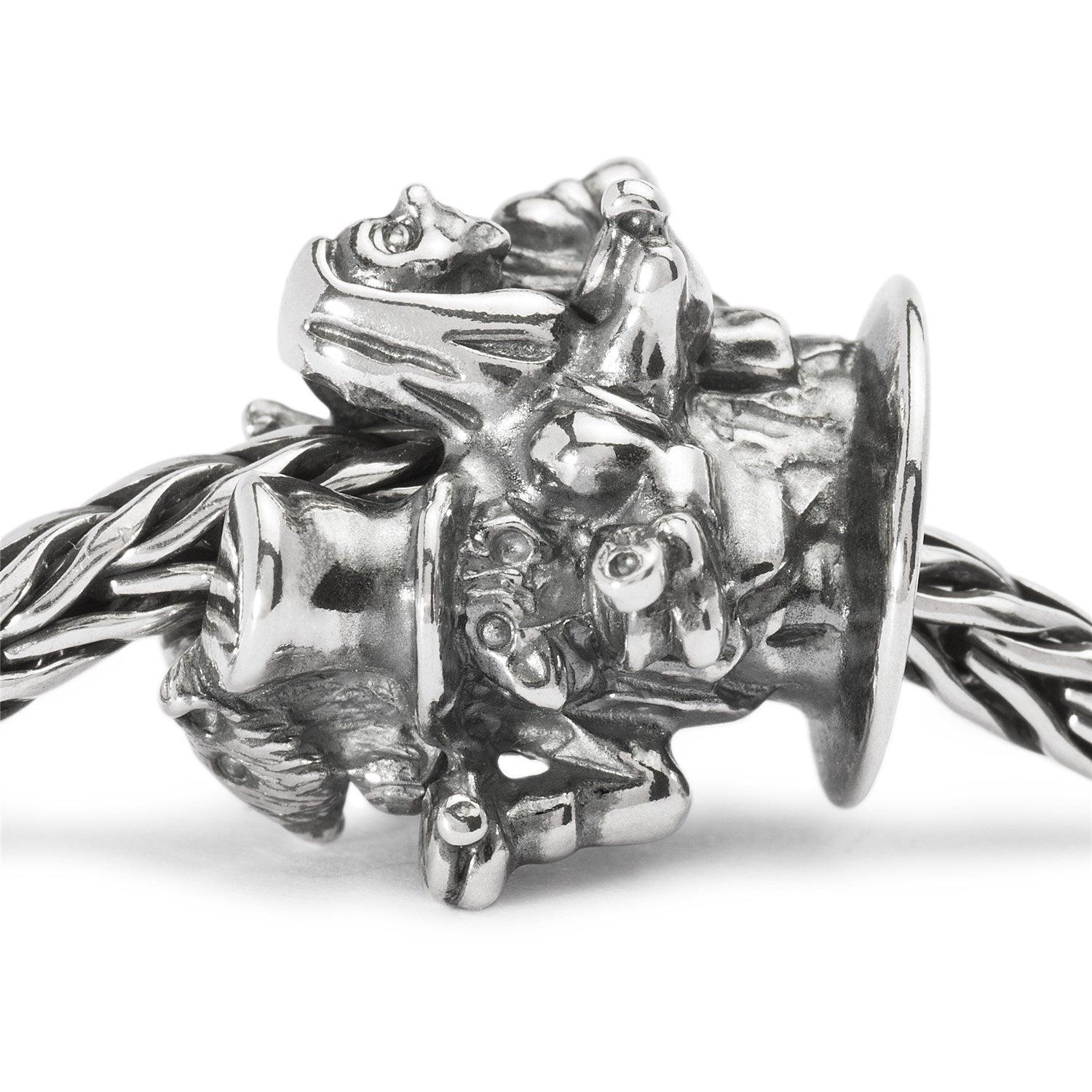
Playa Kalki: A Secluded Paradise in Curacao
Playa Kalki, also known as Alice in Wonderland, is a hidden gem located on the western tip of Curacao. This exquisite beach is renowned for its crystal-clear waters, vibrant coral reefs, and tranquil atmosphere. Perfect for those seeking a peaceful retreat, Playa Kalki offers an escape from the hustle and bustle of more crowded beaches on the island. The beach is a haven for snorkelers and divers, who are drawn to its underwater wonders. The coral formations are teeming with marine life, including colorful fish, sea turtles, and even the occasional stingray. For those new to diving, there are local dive shops providing equipment rentals and guided tours. Onshore, visitors can relax under the shade of thatched palapas or enjoy a meal at the nearby beachside restaurant. The calm, shallow waters make it an ideal spot for families with young children. Despite its remote location, Playa Kalki is accessible by car, with ample parking available. The journey to this secluded beach is part of the adventure, offering scenic views of Curacao's rugged coastline along the way.
Local tips in Playa Kalki
- Bring your own snorkeling gear to fully enjoy the underwater beauty.
- Visit early in the morning to secure a good spot and avoid the afternoon crowds.
- Don't forget to bring sunscreen and a hat, as there are limited shaded areas.
- Check with local dive shops for guided tours if you’re interested in diving.
- Pack a picnic or enjoy a meal at the beachside restaurant for a complete beach day experience.
Playa Kalki: A Secluded Paradise in Curacao
Playa Kalki, also known as Alice in Wonderland, is a hidden gem located on the western tip of Curacao. This exquisite beach is renowned for its crystal-clear waters, vibrant coral reefs, and tranquil atmosphere. Perfect for those seeking a peaceful retreat, Playa Kalki offers an escape from the hustle and bustle of more crowded beaches on the island. The beach is a haven for snorkelers and divers, who are drawn to its underwater wonders. The coral formations are teeming with marine life, including colorful fish, sea turtles, and even the occasional stingray. For those new to diving, there are local dive shops providing equipment rentals and guided tours. Onshore, visitors can relax under the shade of thatched palapas or enjoy a meal at the nearby beachside restaurant. The calm, shallow waters make it an ideal spot for families with young children. Despite its remote location, Playa Kalki is accessible by car, with ample parking available. The journey to this secluded beach is part of the adventure, offering scenic views of Curacao's rugged coastline along the way.
When is the best time to go to Playa Kalki?
Iconic landmarks you can’t miss
Playa Grandi
Experience the crystal-clear waters and vibrant marine life at Playa Grandi, Curaçao's ultimate snorkeling paradise.
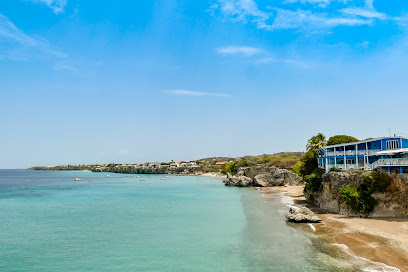
Christoffel National Park
Explore the breathtaking Christoffel National Park in Curaçao, where lush landscapes and diverse wildlife await every nature enthusiast and adventure seeker.
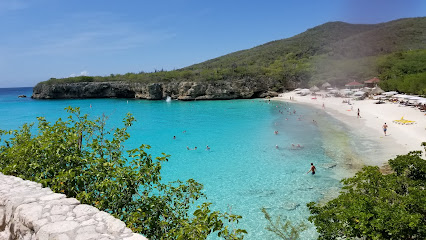
Shete Boka National Park
Explore the rugged beauty of Shete Boka National Park in Curaçao, featuring dramatic cliffs, unique wildlife, and breathtaking coastal views.
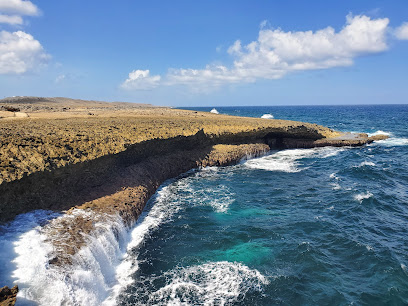
Boka Pistol
Discover the natural beauty of Boka Pistol, a stunning coastal attraction in Curaçao, where adventure and tranquility meet in a breathtaking setting.
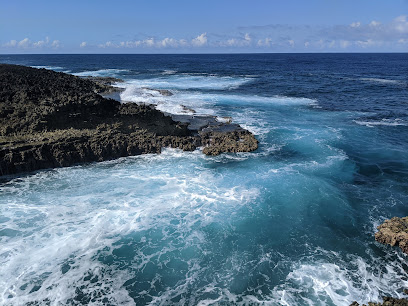
Watamula Hole
Explore the stunning Watamula Hole, a natural wonder in Curaçao, known for its breathtaking cliffs and vibrant turquoise waters, perfect for nature lovers and adventurers.
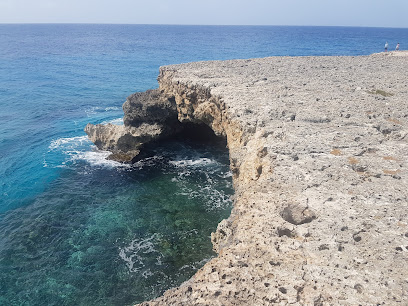
Playa Forti
Discover the beauty and tranquility of Playa Forti, a stunning beach destination in Curaçao ideal for relaxation and aquatic adventures.
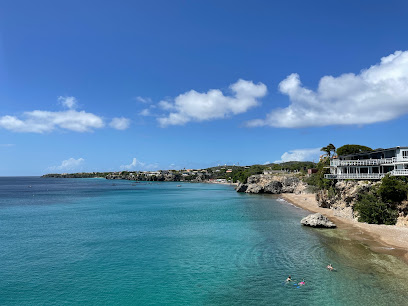
playa piskadó
Experience the tranquil beauty of Playa Piskadó, a stunning beach in Curaçao renowned for its crystal-clear waters and vibrant marine life.
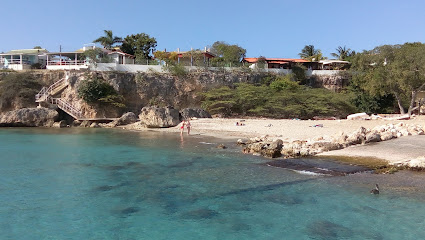
Grote Knip
Explore the breathtaking beauty of Grote Knip, a stunning beach in Curaçao offering crystal-clear waters, idyllic sands, and vibrant marine life.
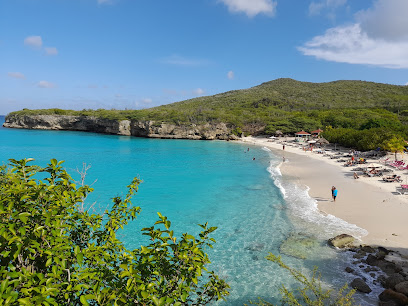
Boka Wandomi
Explore Boka Wandomi, a breathtaking natural treasure in Curaçao, known for its stunning waters, vibrant marine life, and unforgettable coastal experiences.
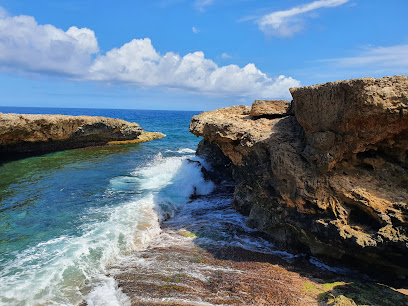
Manor Knip
Explore the historical beauty of Manor Knip, a heritage building in Curaçao, offering archaeological insights and stunning scenic views.
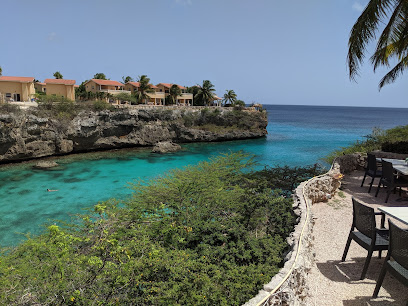
Boka Kalki
Explore the breathtaking coastal views and vibrant marine life at Boka Kalki, a natural treasure in Willemstad, Curaçao.
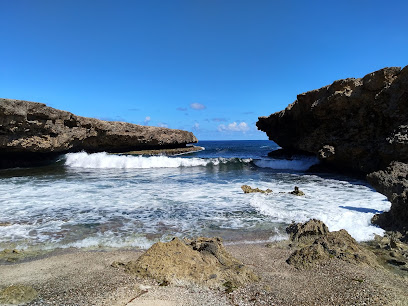
Go West Diving Curacao
Explore the stunning underwater world of Curacao at Go West Diving, where adventure meets expert guidance for divers of all levels.
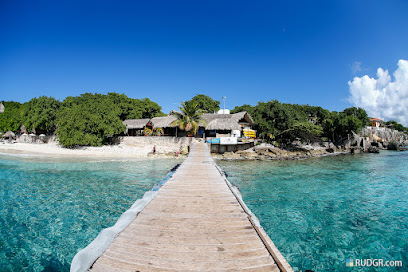
Cast away beach bar curacao
Experience tropical bliss at Cast Away Beach Bar Curacao, where delicious food meets stunning ocean views on the beautiful Playa Kalki.
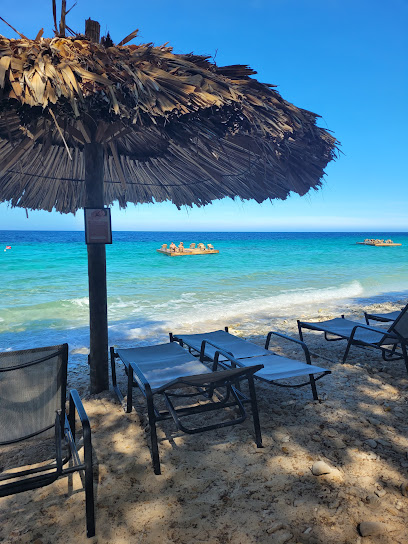
Un Boka
Discover Un Boka in Curaçao, a breathtaking tourist attraction blending stunning landscapes with rich cultural experiences for an unforgettable escape.
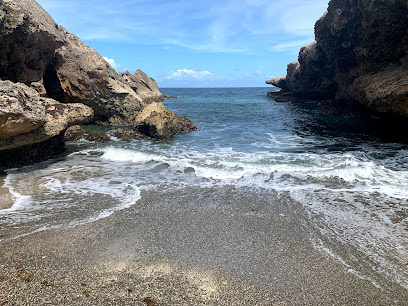
Northernmost Point of Curaçao
Discover the stunning landscapes and tranquil beauty at the Northernmost Point of Curaçao, where nature and adventure await.
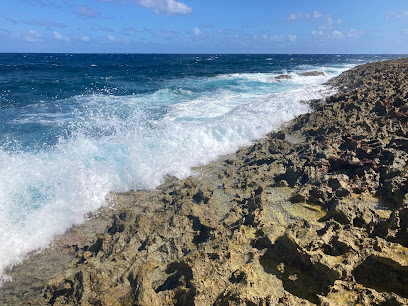
Essential places to dine
Zanzibar Beach & Restaurant
Discover the perfect blend of local cuisine and breathtaking ocean views at Zanzibar Beach & Restaurant in Curaçao.
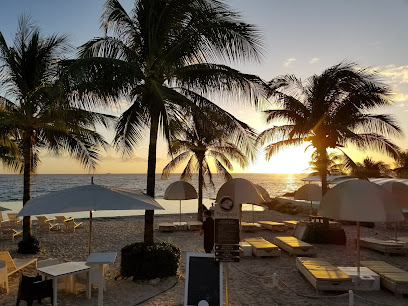
Pirate Bay Curaçao Beach Club and Restaurant
Experience paradise at Pirate Bay Curaçao Beach Club & Restaurant - where delicious cuisine meets stunning ocean views.
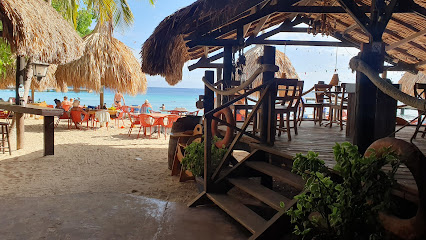
Restaurant & Café Gouverneur De Rouville
Experience authentic Curaçaoan cuisine at Restaurant & Café Gouverneur De Rouville with stunning waterfront views in Willemstad.
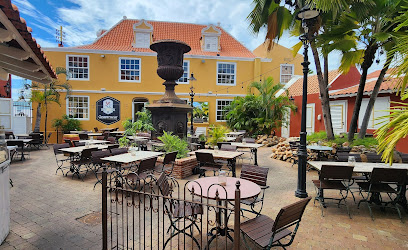
Karakter Beach - Lounge - Restaurant
Discover culinary bliss at Karakter Beach in Curaçao – where exquisite flavors meet breathtaking ocean views.
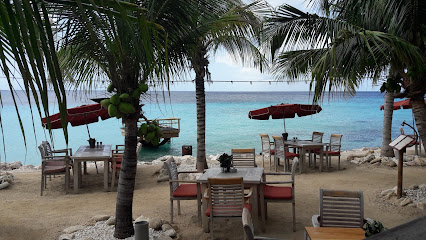
Brisa Do Mar
Discover Brisa Do Mar in Jan Thiel - where exquisite Caribbean flavors meet stunning ocean views for an unforgettable dining experience.
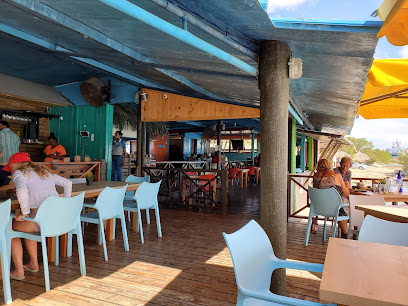
Hemingway
Experience Caribbean flavors and live music at Hemingway in Willemstad—where culinary excellence meets vibrant culture.
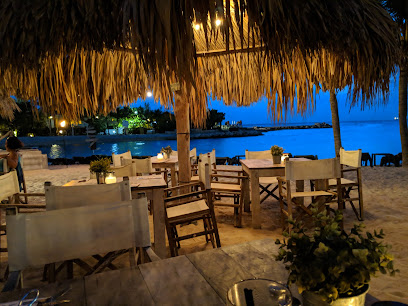
Sea Side Terrace
Discover authentic Caribbean flavors at Sea Side Terrace in Willemstad - where every meal is accompanied by breathtaking ocean views.
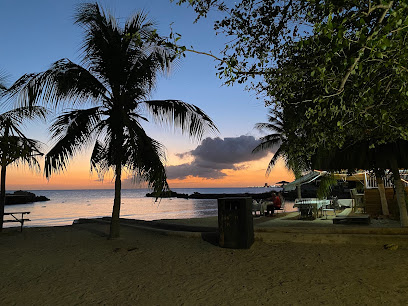
Restaurant Playa Forti
Experience stunning ocean views and authentic Curaçaoan cuisine at Restaurant Playa Forti – a culinary oasis in Sabana Westpunt.
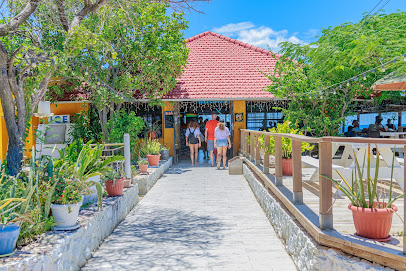
Jaanchie Restaurant
Discover authentic Curaçaoan cuisine at Jaanchie Restaurant, where fresh ingredients meet island hospitality in a breathtaking setting.
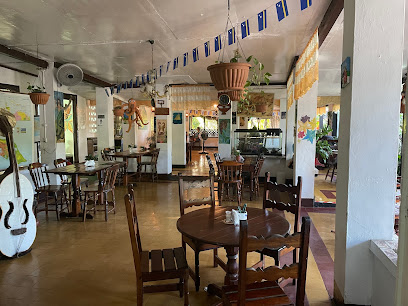
Bali Restaurant Grote Berg
Discover the vibrant flavors of Curaçao at Bali Restaurant Grote Berg - where local ingredients meet international cuisine.
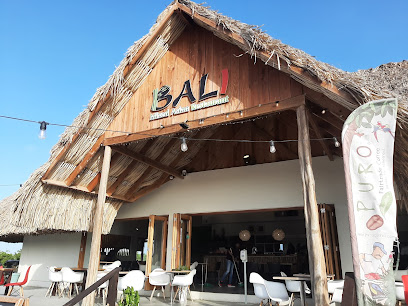
MOOD Beach Curacao
Savor exquisite flavors at MOOD Beach Curacao while basking in stunning ocean views – an unforgettable dining experience awaits.
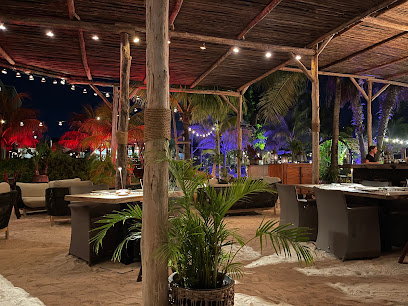
Blue View Sunset Terrace
Dine with stunning ocean views at Blue View Sunset Terrace in Westpunt, Curaçao – where culinary delights meet breathtaking sunsets.
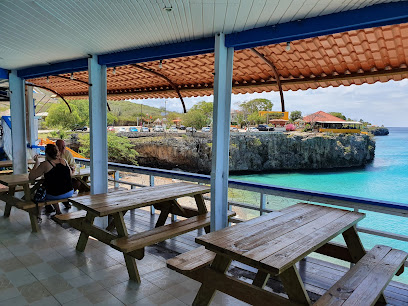
Shelterrock Paradise
Discover Shelterrock Paradise: A Culinary Oasis in Curaçao with Live Music and Local Flavors Awaiting You.
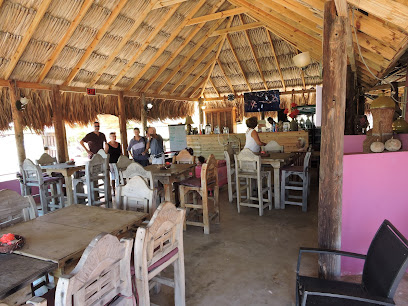
The Niffo Huts
Experience authentic Caribbean flavors at The Niffo Huts in Sint Michiel - a delightful blend of culinary tradition and vibrant atmosphere.
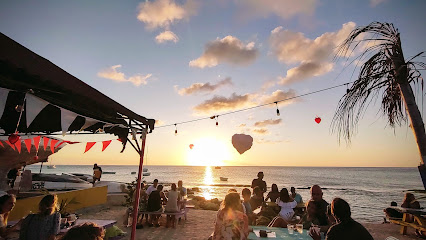
Sol Food
Experience authentic Caribbean cuisine with stunning views at Sol Food, a culinary gem in Sabana Westpunt, Curaçao.
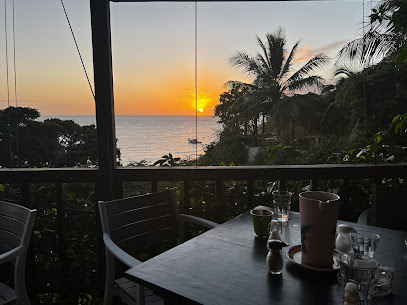
Markets, malls and hidden boutiques
Go West Diving Curacao
Discover the vibrant underwater world of Curacao with Go West Diving, where adventure meets stunning marine beauty in every dive.
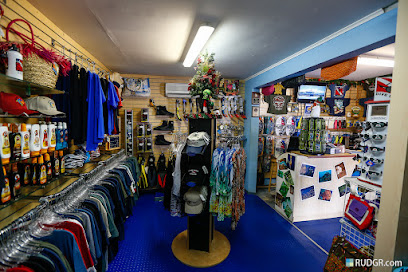
MAYAS CLOTHING CURAÇAO
Experience the vibrant fashion of Curaçao at Mayas Clothing - where local culture meets contemporary style.
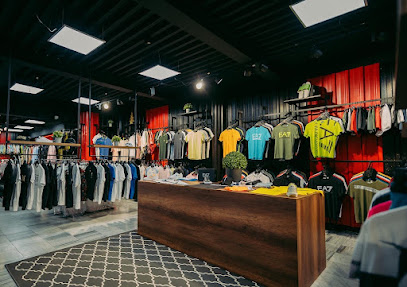
Chichi Shop Punda
Discover unique souvenirs that capture the vibrant spirit of Curacao at Chichi Shop Punda in Willemstad's lively Punda district.
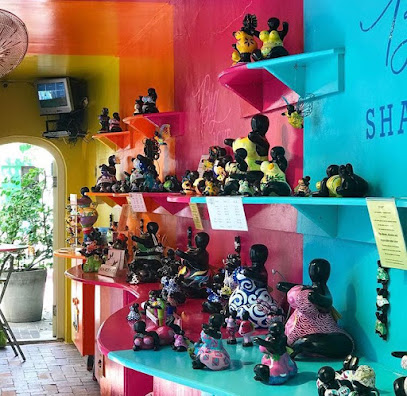
Playa Knip Smoothies
Discover refreshing smoothies at Playa Knip, a tropical paradise in Curaçao offering delightful flavors and stunning beach views.
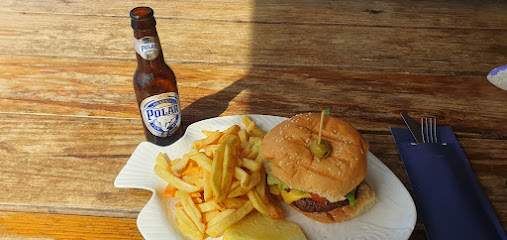
Concept Store by Sea & Sand
Explore the vibrant essence of Curaçao through unique local crafts and stylish goods at Concept Store by Sea & Sand.
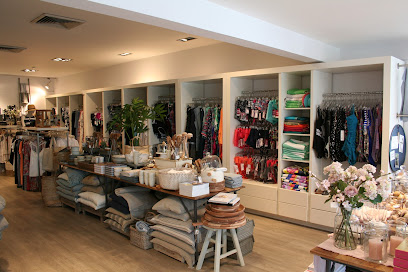
Jolly Fashion by Prakash
Explore unique fashion and accessories at Jolly Fashion by Prakash in Willemstad, a vibrant shopping destination for stylish tourists.
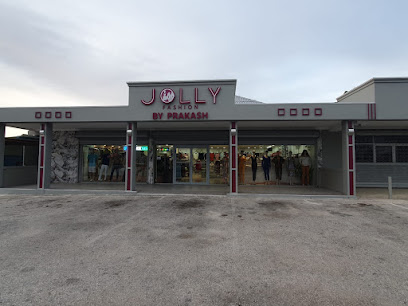
Island Treasures
Explore Island Treasures for authentic Curaçao souvenirs and unique gifts that capture the island's vibrant culture and charm.
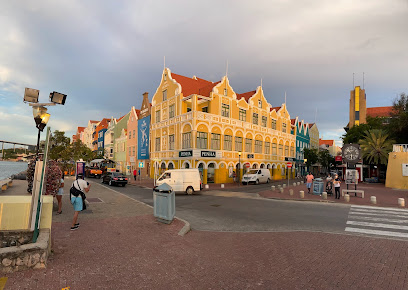
I love Curacao #The hidden beauty of the Caribbean
Explore the vibrant culture of Curacao with unique souvenirs and local crafts at I love Curacao, your destination for authentic Caribbean treasures.
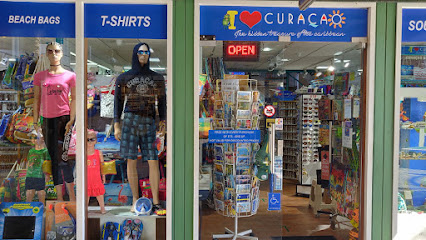
Britt Shop
Discover unique souvenirs and gifts at Britt Shop, the vibrant gift store at Curacao Hato International Airport, capturing the essence of Curaçao.
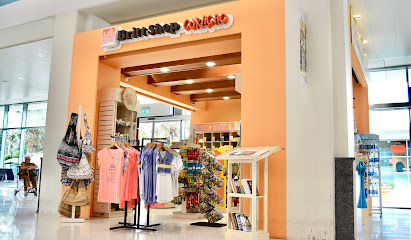
Unique point
Explore Unique Point in Willemstad, Curaçao for stylish men's clothing that reflects island life and contemporary trends.
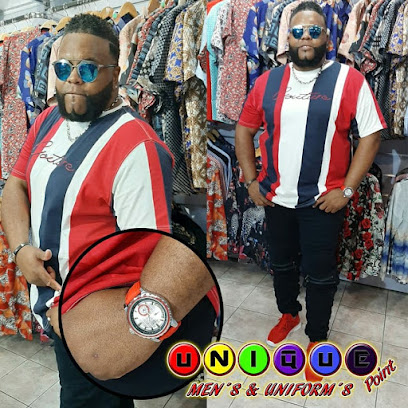
AURA FASHION
Discover the latest trends and stylish outfits at AURA FASHION, a premier women's clothing store in Willemstad, Curaçao.
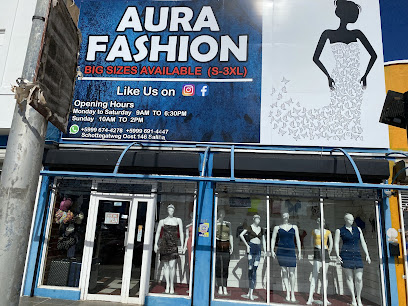
Dolce Vita Boutique
Explore the stylish offerings of Dolce Vita Boutique in Willemstad, Curaçao, where fashion meets local culture and unique designs await.

Memories Curacao
Discover the essence of Curacao at Memories Curacao, where local crafts and unique souvenirs await in the heart of Willemstad.
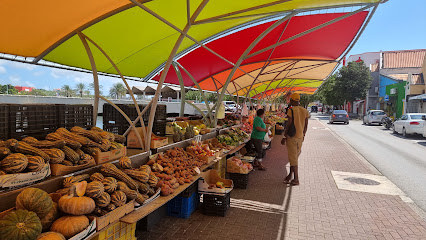
It's a new beginning
Explore the vibrant gift shop 'It's a New Beginning' in Willemstad, Curaçao, for unique souvenirs and local crafts that capture the island's essence.
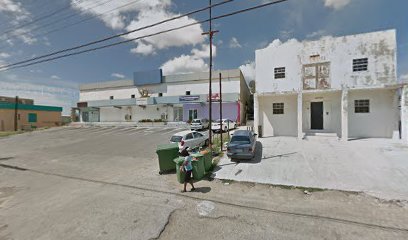
Ji Lie
Discover Ji Lie in Westpunt, Curaçao - your go-to convenience store for essentials, snacks, and refreshing drinks during your tropical adventure.
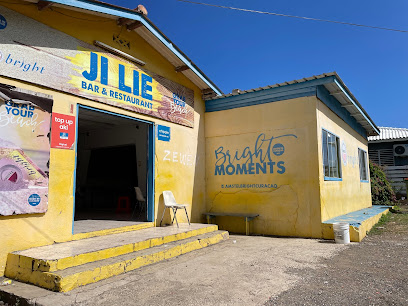
Essential bars & hidden hideouts
Restaurant Playa Forti
Experience the best of Caribbean cuisine with stunning ocean views at Restaurant Playa Forti in Curaçao.
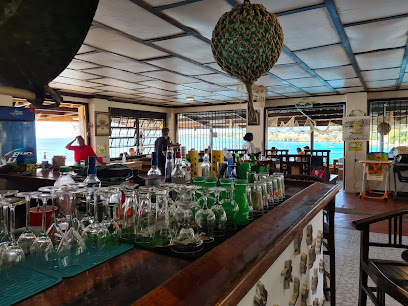
Jaanchie Restaurant
Experience authentic Curaçaoan cuisine in a cozy setting at Jaanchie Restaurant, where every meal tells a story of local flavors.
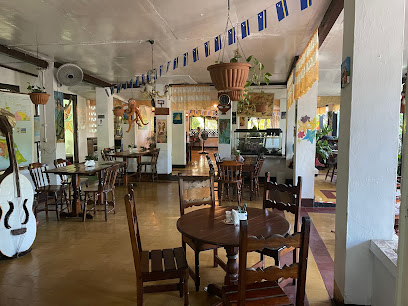
Daaibooi Beach Bar
Experience the vibrant atmosphere of Daaibooi Beach Bar in Willemstad, Curaçao, where tropical drinks, stunning views, and relaxation await.
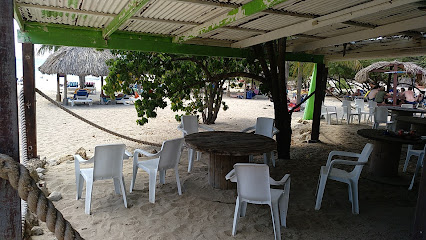
Blue View Sunset Terrace
Experience the culinary delights and panoramic views at Blue View Sunset Terrace in Westpunt, Curaçao, a must-visit for every traveler.
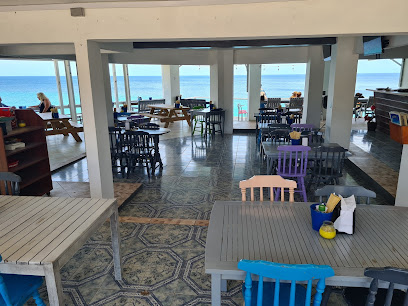
Shelterrock Paradise
Experience delightful cuisine and live music at Shelterrock Paradise, where every meal is a celebration of flavors in a vibrant atmosphere.
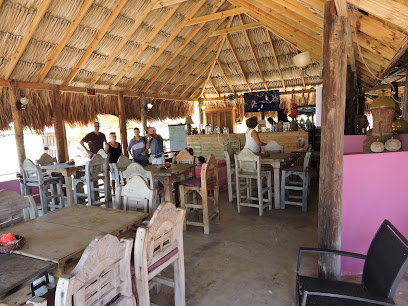
Sol Food
Discover the culinary delights of Sol Food in Westpunt, Curaçao, where Caribbean flavors meet a relaxed dining experience.
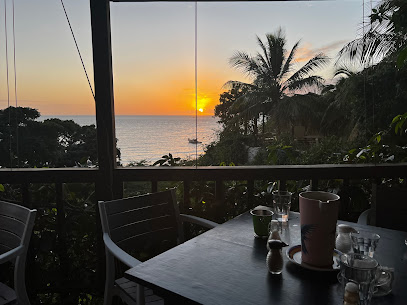
Bahia Beach Bar & Restaurant
Discover the flavors of Curaçao at Bahia Beach Bar & Restaurant, where stunning views meet delicious cuisine in a vibrant atmosphere.
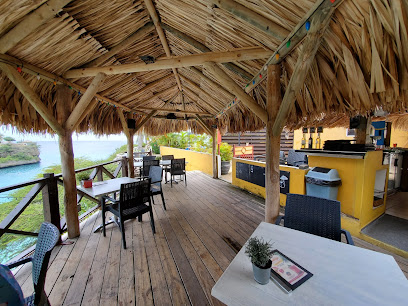
Koraal Rooftop Terrace
Experience exquisite dining with breathtaking views at Koraal Rooftop Terrace, Curaçao's premier spot for delicious cuisine and stunning sunsets.
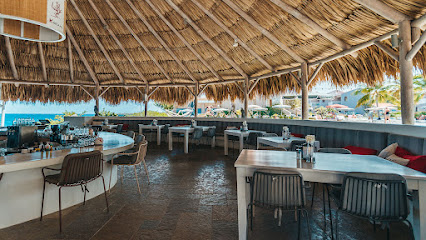
Cactus Cafe
Experience authentic Curaçaoan cuisine with stunning views at Cactus Cafe, a culinary gem in Sabana Westpunt.
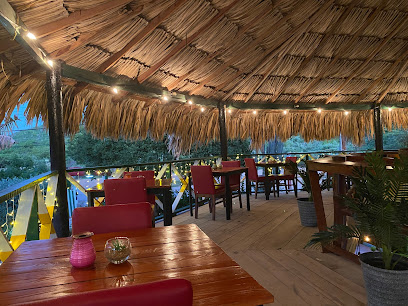
Kunuku Pachi Colá
Experience the authentic flavors of Curaçao at Kunuku Pachi Colá, where local cuisine meets a charming ambiance in Sabana Westpunt.
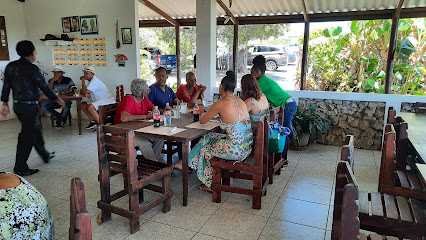
Doo-shee cocktail bar
Experience the vibrant nightlife at Doo-shee Cocktail Bar in Willemstad, Curaçao, with exquisite cocktails and stunning sunset views.
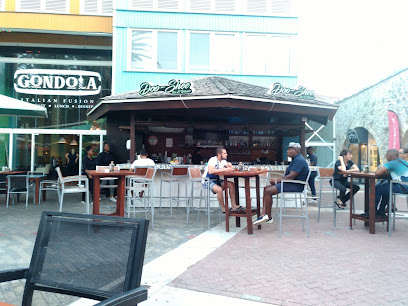
Cast away beach bar curacao
Discover the serene charm of Cast Away Beach Bar in Curaçao, where stunning views and delectable Caribbean cuisine await travelers seeking relaxation.
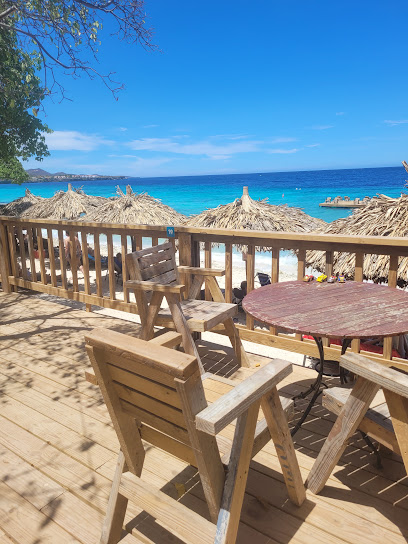
The World Best Mojito Bar
Discover the vibrant charm of The World Best Mojito Bar in Willemstad, where refreshing cocktails and lively ambiance create unforgettable moments.
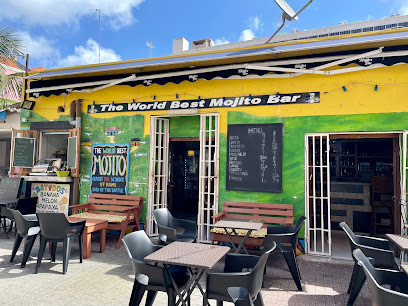
Blend Beach Bar @ Blue Bay Curaçao Golf & Beach Resort
Experience paradise at Blend Beach Bar, a vibrant venue at Blue Bay Curaçao Golf & Beach Resort, offering stunning views and delicious tropical drinks.
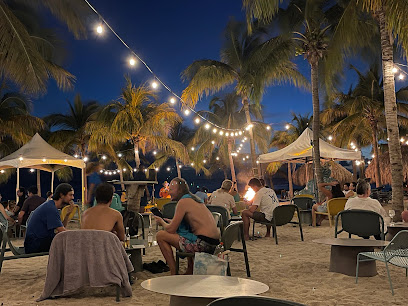
Sabor di Playa Westpunt
Discover the flavors of the Caribbean at Sabor di Playa Westpunt, where fresh ingredients meet breathtaking ocean views for an unforgettable dining experience.
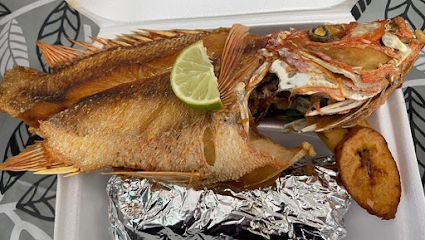
Local Phrases about Playa Kalki
-
- HelloBon dia
[bon dee-ah] - GoodbyeAyo
[ah-yo] - YesSi
[see] - NoNo
[no] - Please/You're welcomePor fabor
[por fa-bor] - Thank youDanki
[dan-kee] - Excuse me/SorryDisculpa
[dees-kool-pa] - How are you?Kon ta bai?
[kon ta bye] - Fine. And you?Bon. I boso?
[bon. ee boh-so] - Do you speak English?Bo ta papia Ingles?
[boh ta pa-pee-ah een-gles] - I don't understandMi no ta kompronde
[mee no tah kom-pron-de]
- HelloBon dia
-
- I'd like to see the menu, pleaseMi ke mira e menu, por fabor
[mee keh mee-rah eh meh-noo por fa-bor] - I don't eat meatMi no ta kome karni
[mee noh tah koh-meh kahr-nee] - Cheers!Salud!
[sa-lood] - I would like to pay, pleaseMi ke paga, por fabor
[mee keh pah-gah por fa-bor]
- I'd like to see the menu, pleaseMi ke mira e menu, por fabor
-
- Help!Yuda!
[yoo-dah] - Go away!Bai for di aki!
[bye for dee ah-kee] - Call the Police!Yamada polis!
[ya-mah-dah poh-lees] - Call a doctor!Yamada dokter!
[ya-mah-dah dohk-ter] - I'm lostMi ta perdi
[mee tah pehr-dee] - I'm illMi ta malu
[mee tah mah-loo]
- Help!Yuda!
-
- I'd like to buy...Mi ke kumpra...
[mee keh koom-prah] - I'm just lookingMi ta solamente mira
[mee tah soh-lah-men-teh mee-rah] - How much is it?Kuantu esaki ta kosta?
[kwan-too eh-sah-kee tah koh-stah] - That's too expensiveEsaki ta muchu karo
[eh-sah-kee tah moo-choo kah-ro] - Can you lower the price?Bo por baha e prijs?
[boh por bah-hah eh prees]
- I'd like to buy...Mi ke kumpra...
-
- What time is it?Kuantu ora ta?
[kwan-too oh-rah tah] - It's one o'clockE ora ta un
[eh oh-rah tah oon] - Half past (10)Mei ora ta (10)
[meh-ee oh-rah tah] - MorningMarduga
[mar-doo-gah] - AfternoonTardi
[tar-dee] - EveningAnochi
[ah-no-chee] - YesterdayAyera
[ah-yeh-rah] - TodayAwe
[ah-weh] - TomorrowMañana
[mah-nyah-nah] - 1Un
[oon] - 2Dos
[dohs] - 3Tres
[tres] - 4Kuater
[kwah-ter] - 5Sinku
[seen-koo] - 6Sies
[seez] - 7Siete
[syeh-teh] - 8Ocho
[oh-cho] - 9Nuebe
[nwah-beh] - 10Dies
[deez]
- What time is it?Kuantu ora ta?
-
- Where's a/the...?Unda ta e...?
[oon-dah tah eh] - What's the address?Kua ta e adres?
[kwah tah eh ah-dres] - Can you show me (on the map)?Bo por mustra mi (riba e mapa)?
[boh por moos-trah mee ree-bah eh mah-pah] - When's the next (bus)?Kon ora ta e siguiente (bus)?
[kon oh-rah tah eh see-gwee-en-teh boos] - A ticket (to ....)Un tiki (pa ....)
[oon tee-kee pah]
- Where's a/the...?Unda ta e...?
History of Playa Kalki
-
Before the arrival of Europeans, the Arawak and Caquetio people inhabited the area now known as Playa Kalki. These indigenous tribes were skilled fishermen and farmers who thrived in the Caribbean climate. Their rich cultural heritage is still evident in some of the local traditions and archaeological sites found in the region.
-
In 1499, Spanish explorers led by Alonso de Ojeda arrived on the island of Curacao, including the area around Playa Kalki. The Spanish initially used the island as a cattle ranch due to its arid climate and lack of gold or other precious resources. However, they left a lasting impact on the region, introducing European flora and fauna.
-
In 1634, the Dutch West India Company seized control of Curacao from the Spanish, marking the beginning of the Dutch colonial era. The area around Playa Kalki became part of the new Dutch territory, and its strategic location made it an important site for trade and defense. Forts and other colonial structures were built to protect the island from potential invaders.
-
During the 17th and 18th centuries, Curacao, including Playa Kalki, became a crucial hub in the transatlantic slave trade. Enslaved Africans were brought to the island and sold to plantations throughout the Caribbean and South America. The island's economy grew with the establishment of plantations, where crops like aloe, indigo, and maize were cultivated.
-
In 1863, the Netherlands abolished slavery in its colonies, including Curacao. The abolition marked a significant turning point for the island and Playa Kalki. Freed slaves began to establish their own communities and contributed to the island's cultural and social development. The legacy of this period is still evident in the vibrant Afro-Caribbean culture of Curacao.
-
In the 20th century, Playa Kalki transformed from a quiet fishing village into a popular tourist destination. The area's pristine beaches, crystal-clear waters, and vibrant marine life attracted visitors from around the world. The growth of tourism brought economic development and modern amenities to the region, while still preserving its natural beauty and cultural heritage.
-
In recent years, Playa Kalki has become known for its commitment to marine conservation. Local organizations and international partners have worked together to protect the area's coral reefs and marine life. These efforts include coral restoration projects, sustainable tourism practices, and educational programs aimed at preserving the natural environment for future generations.
Playa Kalki Essentials
-
Playa Kalki is located on the northwestern tip of Curacao, part of the Dutch Caribbean. The nearest international airport is Hato International Airport (CUR) in Willemstad, approximately 30 kilometers away. From the airport, you can rent a car, which takes about 40-50 minutes to drive to Playa Kalki. Alternatively, you can take a taxi or arrange for a shuttle service through your accommodation.
-
Public transportation options in Playa Kalki are limited, so renting a car is highly recommended for convenience and flexibility. Taxis are available but can be expensive for longer distances. Biking is also a popular option for exploring nearby areas. Some hotels offer shuttle services to and from popular attractions.
-
The official currency of Curacao is the Netherlands Antillean Guilder (ANG), but US dollars (USD) are widely accepted. Credit cards are accepted in most hotels, restaurants, and shops. It is advisable to carry some cash for smaller establishments and tips. ATMs are available but may be sparse in more remote areas.
-
Playa Kalki is generally a safe destination for tourists. However, like any travel destination, it's important to take standard precautions. Avoid leaving valuables unattended on the beach and be cautious when walking alone at night. Areas like Otrobanda and parts of Punda in Willemstad have higher crime rates, so exercise increased vigilance if visiting these areas.
-
In case of emergency, dial 911 for immediate assistance. The nearest hospital is the St. Elisabeth Hospital in Willemstad, approximately 30 kilometers away. It is recommended to have travel insurance that covers medical emergencies. For minor health issues, there are pharmacies in Willemstad where you can purchase over-the-counter medications.
-
Fashion: Do wear casual and comfortable clothing, but avoid overly revealing attire when outside of beach areas. Religion: Do respect local customs and avoid loud or disruptive behavior in religious or residential areas. Public Transport: Public transport options are limited; renting a car is the best option. Greetings: Do greet people with a smile and a friendly 'Bon Dia' (Good Morning). Eating & Drinking: Do try local dishes like Keshi Yena and Funchi. Don't refuse food or drink if offered by locals, as it is considered impolite.
-
To experience Playa Kalki like a local, visit the local markets and try fresh produce and seafood. Engage with locals who are often friendly and willing to share stories about the area's history and culture. Don't miss the opportunity to go snorkeling or diving at the famous 'Alice in Wonderland' dive site. For a unique experience, take a sunset cruise along the coastline.
Nearby Cities to Playa Kalki
-
Things To Do in Westpunt
-
Things To Do in Soto
-
Things To Do in Barber
-
Things To Do in Sint Michiel
-
Things To Do in Julianadorp
-
Things To Do in Willemstad
-
Things To Do in San Nicolas
-
Things To Do in Savaneta
-
Things To Do in Santa Cruz
-
Things To Do in Pos Chiquito
-
Things To Do in Paradera
-
Things To Do in Sero Blanco
-
Things To Do in Tanki Leendert
-
Things To Do in Oranjestad
-
Things To Do in Noord


